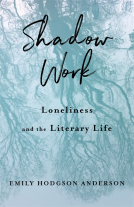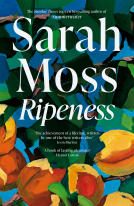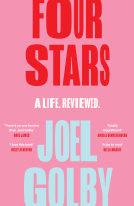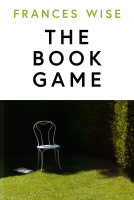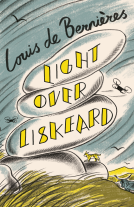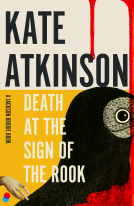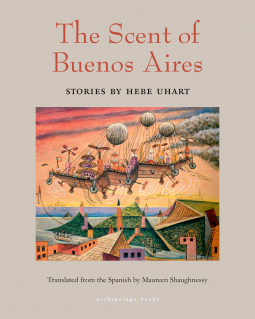
The Scent of Buenos Aires
Stories by Hebe Uhart
by Hebe Uhart
This title was previously available on NetGalley and is now archived.
Send NetGalley books directly to your Kindle or Kindle app
1
To read on a Kindle or Kindle app, please add kindle@netgalley.com as an approved email address to receive files in your Amazon account. Click here for step-by-step instructions.
2
Also find your Kindle email address within your Amazon account, and enter it here.
Pub Date 15 Oct 2019 | Archive Date 25 Aug 2019
Talking about this book? Use #TheScentOfBuenosAires #NetGalley. More hashtag tips!
Description
“These stories rarely adhere to conventional plots, but as mood pieces they're effective glimpses into the peculiarities of Uhart's characters, who crave order but usually concede that the world's default mode is disarray.” — Kirkus Reviews
The Scent of Buenos Aires is the first collection of Uhart’s to be published in English, drawing together her best vignettes of quotidian life, stories that sneak up on you. Refreshingly approachable, they are punctuated by street talk and saturated with a cryptic wit that recalls Lydia Davis.
In The Scent of Buenos Aires, Uhart renders moments at the zoo, the hair salon, or a homeowners association meeting with delightfully eccentric insight. These stories cast an unusual, intimate light on the inner lives of plants, animals, and humans, magnifying the minute, everyday quirks of Argentina’s small towns: a cat curls around his owner to humor him, a classroom of children sway like trees when their teacher turns her back. Smiling to herself, Uhart reveals the infinite ways we show ourselves to one another.
Advance Praise
"Hebe approached her subjects from an astonished and oblique angle that, at first, might appear naive. Not so. Her short stories feature protagonists rarely seen in Argentine literature [...] Always rescuing the voices that no one pays attention to, yet not at all in a pompous way, for, if there was one thing that Hebe Uhart never wanted to do, it was to fall into the common position of giving voice to the voiceless and other slogans that she would consider idiotic." — from "Perfect Pitch" by Mariana Enriquez, author of Things We Lost in the Fire, in Página/12 "I do not like authors who are too satisfied. The best tradition of Argentinean literature was built in these vacillations: the uncertain narrator of Borges or of Hebe Uhart, that idea that meaning is always being constructed, and that opposes other traditions in which the narrator is sure of the order of things." - Ricardo Piglia "Hebe Uhart is the best contemporary Argentinean storyteller." - Rodolfo Enrique Fogwill "[In Uhart's writing] from simplicity one penetrates depths and labyrinths where you can only advance if you participate in the magic of that new world...It neither clarifies nor completes a known reality. It reveals, or rather, it is a unique, distinct reality." - Haroldo Conti "Hebe is the best and the strangest. After decades of writing and publishing narrations, Hebe became an author that dominated a central genre for the Argentine tradition: the short story. However, this has the geographic particularity of being transnational: when we think about stories in Argentina we think about literature created in the Río de la Plata, between Argentina and Uruguay. And that was one of the strongest nuclei in Hebe's literary identity, by which it was not a national but an inherently Río de la Plata literature." - Inés Acevedo "Hebe's texts (her fiction as well as her chronicles) played with the world in a manner that didn't fully coincide with Victor Shklovski's definition of defamiliarization, that disposition of finding the strange and the unfamiliar within the quotidian. This is perhaps because the quotidian perception of Hebe Uhart in the world was, in itself, lacking automatization from the beginning, being always full of amazement, of a cultivated sense of bewilderment. That register was then translated to her texts through a writing that was ingeniously natural, with a simplicity that was only simulated." - Martin Kohan "The world of Hebe Uhart, which so intensely appears in her stories, is abundant, collective and absolutely personal ... She as given Argentine Literature countless unforgettable, exciting characters that establish, when talking or acting, when having certain feelings over others, a way of existing, of resisting, of withstanding." - Elvio E. Gandolfo
Available Editions
| EDITION | Other Format |
| ISBN | 9781939810342 |
| PRICE | US$24.00 (USD) |
| PAGES | 392 |
Featured Reviews
The Scent of Buenos Aires is a beautiful collection of the author’s noteworthy short stories translated in English. The stories are short, witty, and interspersed with humor. It features eccentric and fun characters making this a pleasant read. The stories are a mixture of reflection and observation and the author’s narrators pose questions about life and the surrounds for the reader to ponder.
In the “Guiding the ivy” the narrator draws a contrast between the personality of plants and humans and notes some similarities. She writes about her plants—a plain green ivy that seems to have gotten smaller, and a desert plant she thinks is ugly. She also makes some mundane observations about her garden: the way her plants sit in their pots, and her flowerpot sizes
“It was the cat’s fault” features Doris, a director of a dance school who lives in a dance studio— the narrator writes, “there was an old house with the door painted purple and green“ with her seven cats 🐱; there’s her ex-husband, Agustín, who stops by once in a while looking for a place to crash.
Her current husband, Miguel doesn’t live with her because the daily hustle would diminish their marital relations. When he does visit, he helps her around the house. He’s supposed to come help mount the practice barre for her students. The upside to this arrangement is that her ex-husband and her husband are good friends.
Her cats have different personalities. Take Ana Poteraika for instance, who’s the most beautiful of all the cats but she’s also anorexic. Doris has tried to feed her liver but with little success. Ana eats only tenderloin steak 🥩 chopped into tiny pieces and fed to her. But even so, she would eat one or two pieces only, leaving the rest for Dagoberto, another cat with an enormous appetite to gobble up.
I admired her uncanny relationship with her ex and sometimes I found their dialogue amusing.
In “The Cake”, the narrator shares with the reader her desire to “make a cake that’s light and fluffy”. She adds that she doesn’t want to make cookies because they lack a third dimension quality to them. She notes that when you eat cookies, it feels like there’s something missing, and that’s you can’t stop eating them. The narrator wants to make a fluffy cake that’s reminiscent of a cake she once tasted called “Paradise Cake”.
With her mother’s approval (and her help, of course) she sets off to make a fluffy cake.
But the narrator grows impatient and keeps opening the lid of the pan to see if the cake is done. Her impatience finally gets the better of her and she takes down the cake.
By then, the cake has turned dark brown and shrunken, “like a stubby croissant”. Nobody can eat the cake.
In “Tourists and travelers”, the narrator recounts her visit to Naples with her husband Aldo and her son, Leo. On her way to the Naples flea market, she observes how the locals live—“the windows of their houses look directly out on the street and one could see everything people are doing inside”. You can see their bed, a refrigerator, a piano and so on. She also notes how her husband goes dumbstruck whenever he comes across normal sightings such as food on display in front of a shop window and a fish at the fishmonger’s. Highly recommend.
Many thanks to Hebe Uhart, NetGalley, and Archipelago for an ARC of this book in exchange for an honest review.
 Reviewer 516774
Reviewer 516774
Never been a big fan of short story collections as I enjoy getting lost in a big book rather than being presented tiny worlds trapped in short stories. However, this book is some sort of magical. The connection with the reader is immediate, sincere and deep. The words touch somewhere in your soul and I thoroughly enjoyed the whole collection. I am looking forward to reading more of Uhart's works as I cannot imagine how wonderful her novels would be.
So this is not a short story collection about a certain topic. The stories are from the everyday life and most of the stories evolve around observations and women in search for perfection -whether it is to be the perfect hostess, to make the perfect cake, to be without a red spot to look perfect etc... - and failure to be perfect. What I liked most about the short stories are that they do not follow a plot, they do focus on characters and their quest to be perfect/flawless/better. Apart from this focus point, I really enjoyed "Christmas Eve at the Park". Special thanks to Archipelago and Netgalley for an ARC of this book in exchange for my honest opinion.
 Subashini N, Reviewer
Subashini N, Reviewer
The Scent of Buenos Aires is blurbed as "the first book-length English translation of Uhart's work" & I'm glad to have discovered a female Argentinian voice. This is a rather massive book with 25 short stories. As story anthologies go, some stories are better than others but I love Uhart's offbeat, irreverent sensibility. My fave stories feature idiosyncratic, oddball narrators. A treat.
 Kasa C, Reviewer
Kasa C, Reviewer
Thanks again the Archipelago publishing house for providing beautiful translations of heretofore unattainable works, in this case, from an Argentine author virtually unknown outside her home country. Hebe Uhart was an award winning author who did not live to see her short stories anthologized in English, a shame. Each story is a small vision into daily life, a jewel. Sometimes showing brilliance of wit and humor. Highly recommended.
 Jim S, Reviewer
Jim S, Reviewer
This is a fascinating collection which brings together short stories, character vignettes and a little bit of apparently autobiographical writing by the Argentinian writer, Hebe Uhart, who died in 2018. She once described story writing as being like a little plant that is born and grows and you get that sense in these stories that even as she starts writing she is not sure of the destination.
There are some common themes. The contrast between city and country life is often explored as is the sense of alienation that people can feel in a big city which is not their natural home. Domestic situations and discordant relationships feature and are nicely observed. The notion of letting the story almost develop as it will works well here. There's one about Doris who owns and runs a fairly average dance school and whose day is interrupted by the arrival of her ex-husband and her more recent partner. We read about Doris juggling the needs of these two as they get progressively drunk together as well as about the additional needs of the cat and her attempts to flatter a businessman over a meal in the hope that he might help to develop the dance school. It's all a long series of chores, mostly compromised, but it adds up to a picture of a life - nothing exceptional, just living as it really is. That's how many of the stories work. There's another about a glum and dysfunctional family going on holiday and the hopes of the mother for a cultural trip which are constantly thwarted. It's funny and maybe inconsequential but makes for a good read.
There's lots of humour in the stories both in characters and situations. If you like reading, you'll warm to the one about the literary festival where members of the group constantly hijack the discussion to get their own beefs off their chests while the writer tries to facilitate. I've been there!
The final thing about the stories is that taken together you get a nice picture of Argentina and Latin American life over the last twenty years or so but also the sense that humanity is a common characteristic in all of its struggles. It's a good read!


